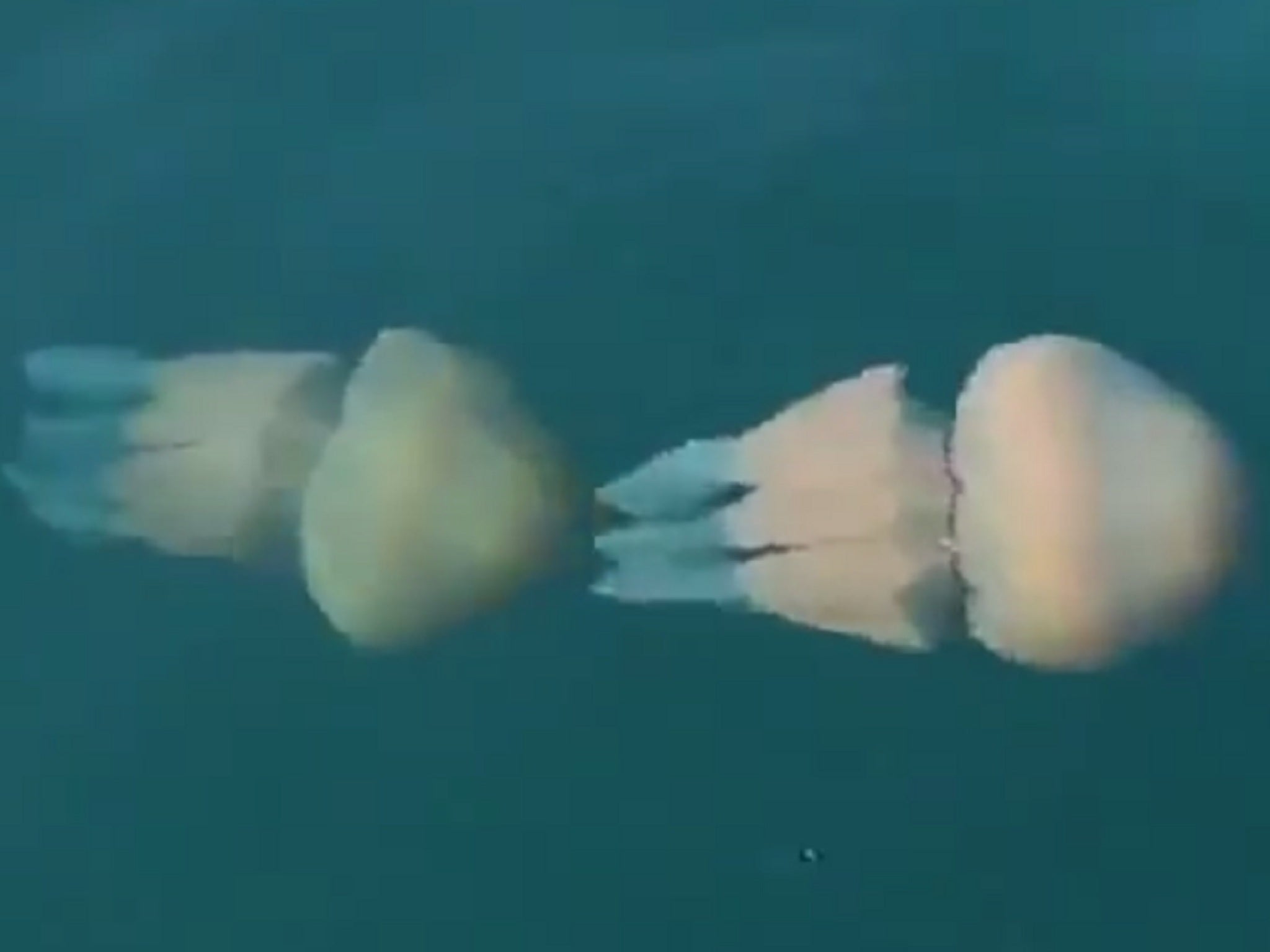British beaches could close because of jellyfish
Thousands of jellyfish have been spotted on a Welsh beach

Beaches in the south-west of Britaincould be forced to close this year as an "unusually high number" of jellyfish have swarmed their shores.
It has been reported that thousands of barrel jellyfish have been found on Cefn Sidan beach in Pembrey, near Llanelli. High numbers of jellyfish have also been spotted at Dawlish Warren in Devon.
The warmer weather could be behind their increasing numbers, said Rory Dickinson of Carmarthenshire council.
“We’ve seen a few dotted around the beach for the last two weeks or so. They generally make an appearance every year but their numbers have increased, partly due to the warm spell and the changing chemicals in the sea,” said the countryside and parks manager.
“It’s likely the tide will take them back out over the next couple of days. They’re generally harmless, lead amazing lives and are a vital part of our wildlife.”
But Dr Keith Hiscock, a local marine conservation scientist, said beaches could be forced to close across the south west, the Daily Express reported.
It was the “year of the jellyfish”, he said, because of the “unusually high number” of barrel jellyfish along the coastline.
“Beaches in Portugal have in fact been closed due to the sheer number of jellyfish in the water and that’s quite possible here. I don’t know what sort of authority the lifeguards have but they would need to close the beaches across the whole region to all swimmers if any of the nasty ones came along.”
Dr Hiscock said people did not have to worry about barrel jellyfish despite their ability to grow up to four feet wide. Rather caution was needed when it came to the blue jellyfish and compass jellyfish.
“It’s best for swimmers and beach-goers to avoid any contact with them.”
In 2014, the Marine Conservation Society said the majority of jellyfish reports that year had been for the barrel variety in South West England and Wales.
Professor Brendan Godley from the University of Exeter said: “The remarkable number of barrel jellyfish reported from South West England this year is quite unusual… We’re not sure why, but the very mild winter probably meant more adults survived at depth, which will have returned to the surface in spring as waters warmed up. "
Join our commenting forum
Join thought-provoking conversations, follow other Independent readers and see their replies
Comments
Bookmark popover
Removed from bookmarks